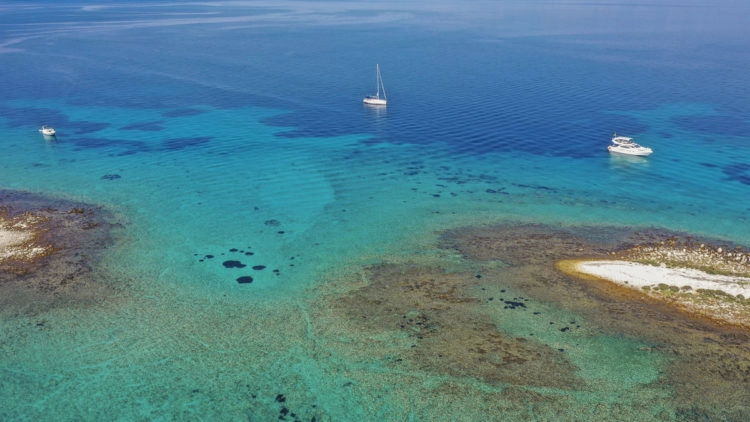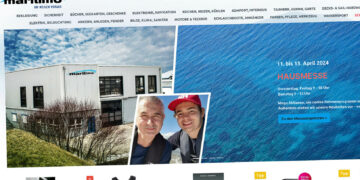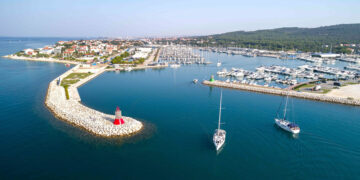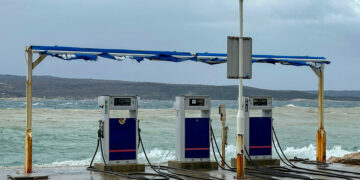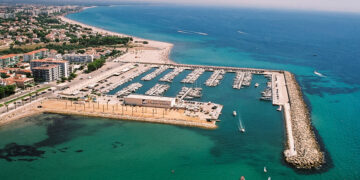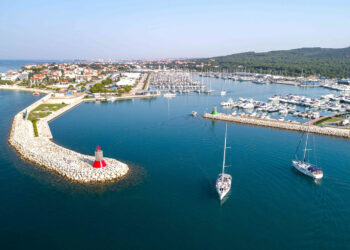Now it becomes close for the travel country Croatia, and not only by the substantial increase of COVID 19 new infections in the region Zagreb as well as in the ranges Split and Sibenik, but also through intensified measures as a result of the Corona Summit in Germany, which are to take effect on return travel from corona-risk areas. The target date for this was 1 October, but in the joint declaration announced by Chancellor Merkel and the Prime Ministers of the Länder, the restriction “if possible on 1 October” was chosen.
Corona Summit: The regulations in detail
At the controversially discussed Corona summit, it was finally agreed that “as far as possible” from October 1, all vacationers who come from a risk area, as shown on the website of the Robert Koch Institute, must go into a mandatory 14-day quarantine. As of today (August 27, 2020), these are the Split and Sibenik regions in Croatia. However, the situation may change.
Klicken Sie auf den unteren Button, um den Inhalt von ngp.zdf.de zu laden.
Germany: Quarantine abort after corona test
Anyone returning from the risk areas mentioned above does not use a corona test at the border. At the earliest on the fifth day after his return from a risk area, he can have a corona test (PCR test) performed. If the result is negative, the 14-day quarantine can be cancelled if the test result is available. Again, the possible waiting period should be taken into account.
continued payment of wages or loss of income
Anyone who has to go into quarantine after returning from a trip to a risk area has no right to continued payment of wages, if the federal states have their way. Loss of income is then not compensated for, as has been partly the case in the past. However, this regulation only applies if the corresponding travel country or region has already been defined as a risk area before the start of the trip. For holidaymakers who were surprised by a travel warning or classification as a risk area at the destination of their trip, this regulation should not apply. Hereby one wants to avoid obviously that holiday-makers start journeys into risk areas consciously and load after their return additionally the general public. Two days before, however, it was still said that the state pays for it, even if someone knowingly travels to a risk area.
The legal basis for this has so far been provided by § 56 of the Infection Protection Act, according to which compensation is paid if someone is “banned from exercising their previous occupation or is subjected to it and thereby suffers a loss of earnings. However, it remains questionable whether a change in the law will pass through the committees in the short time available.
Free COVID 19 tests for vacationers
The free coronavirus tests are to be abolished as of September 16 for all travelers coming to Germany from abroad. That is to be offered, then it is planned, in the future only for returnees from risk areas free of charge. Here it concerns also to make the test resources scarce also in Germany available again for urgently needed groups of persons such as old and nursing homes.
Problem Croatia and Coronavirus
In Croatia, the number of new coronavirus infections is approaching a critical mark, after which there may well be the possibility of extending the travel warning from Germany for the Split and Sibenik regions to the entire country. For the sake of order, however, it should be noted that the epidemiological situation in the country is developing extremely negatively due to the pure numbers in the last few days. However, this trend is due to the fact that in the so-called corona hotspots such as Sibenik and Split, but also in Zagreb, the number of new infections continues to increase strongly, while the regions of Kvarner and Istria show a significantly lower number of daily new infections with the corona virus. How the decision will ultimately turn out, however, will probably also depend on the development in the coming days.
Constantly updated table of COVID-19 infections in Croatia
[wppress-covid19 display=”bar” country=”Croatia” custom_title=”yes” custom_title_text=”Croatia – New infections per day” width=”720″ height=”500″ responsive=”yes” show_confirmed=”yes” show_deaths=”yes” show_recovered=”yes” show_active=”yes” confirmed_legend=”confirmed” deaths_legend=”deaths” recovered_legend=”recovered” active_legend=”current cases” padding=”0″ border_radius=”0″ background_color=”#00000000″ title_color=”#333333″ confirmed_color=”#5082c7″ deaths_color=”#d04b5a” recovered_color=”#4caf50″ active_color=”#e38b4f” title_font_size=”18″ /]
[wppress-covid19 display=”chart” country=”Croatia” custom_title=”yes” custom_title_text=”Croatia – Current total number of infected” width=”720″ height=”500″ responsive=”yes” show_daily_change=”no” show_confirmed=”no” show_deaths=”no” show_recovered=”no” show_active=”yes” active_legend=”current cases” padding=”0″ border_radius=”0″ background_color=”#00000000″ title_color=”#333333″ active_color=”#e38b4f” title_font_size=”18″ /]
Holidaymakers should adjust to the situation at an early stage
In contrast to the handling in other countries, the so-called German “Corona Summit” announced the planned measures in good time in order to avoid, among other things, chaos at entry, as Austria caused.
Coronavirus does not yet affect water sports
First inquiries of the SeaHelp editorship resulted in that so far from Croatia not a case of the editorship is well-known, with which a yacht owner or a charter guest on board a charter yacht is to have infected themselves with the Coronavirus. The same applies to Slovenia and Northern Italy. We will try here however to be able to supply also for the next season with loadable numerical data to the skippers in the Adriatic region a decision making aid.


